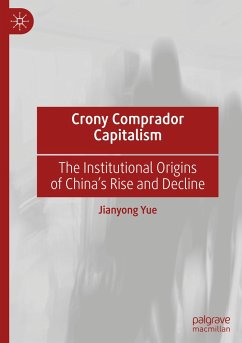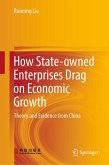This book offers a multidisciplinary redefinition of China's model of crony comprador capitalism. The author argues that this model emerged through the fusion of market Leninism and global capitalism in the early 1990s within the post-Cold War and post-Communist global context. While driving robust export-led growth, this approach hindered China's structural transformation and limited its ascent, ironically leading to the regime's accelerating totalitarian turn and the onset of a new Cold War. In line with the call for 'Capitalism 3.0,' the book advocates Western decoupling from China and promoting the country's transition to a democratic developmental state, fostering a safer world for democracy over autocracy. It will be of interest to academics and policy-makers in a wide range of fields, including political economy, political studies, international relations, and economic history.
Bitte wählen Sie Ihr Anliegen aus.
Rechnungen
Retourenschein anfordern
Bestellstatus
Storno









